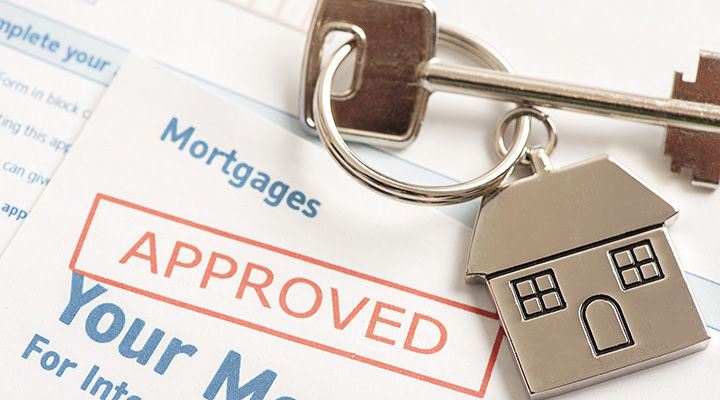A Comprehensive Overview to Home Loans: Provider and Options Explained
Charting the globe of mortgage can be complex. Various options exist, each with special features and effects for potential property owners. Comprehending the differences between government-backed and traditional financings is necessary. Additionally, the application procedure entails meticulous documents and pre-approval actions that numerous neglect. As debtors commence on their home-buying journey, knowing exactly how to manage these responsibilities properly can mean the difference in between economic security and challenge. What approaches can encourage them on this path?
Understanding Home Loans: Kinds and Terminology
Recognizing the different sorts of home mortgage and their associated terminology is necessary for prospective home owners, as it equips them with the knowledge required to make enlightened economic decisions. Mortgage can be generally classified into adjustable-rate and fixed-rate mortgages. Fixed-rate mortgages maintain a regular rate of interest over the life of the funding, supplying security in regular monthly repayments. Cash Loans. Conversely, adjustable-rate home mortgages include rate of interest that may fluctuate after a preliminary set duration, potentially leading to lower preliminary settlements but enhanced future costs
Added terminology is very important for quality. Principal describes the funding quantity borrowed, while passion is the expense of loaning that amount. The term of the lending indicates its period, commonly varying from 15 to 30 years. Comprehending these essential ideas makes it possible for potential purchasers to browse the complicated landscape of home financing, guaranteeing they choose the best financing alternative that aligns with their economic situation and long-lasting objectives.
Conventional Car Loans vs. Government-Backed Loans
A significant distinction in home financing exists between government-backed lendings and standard loans, each catering to different debtor requirements and conditions. Traditional financings are not insured or ensured by the government and normally require higher credit rating and down settlements. They are often appealing to customers with secure financial backgrounds, as they might offer competitive rate of interest and terms.
In contrast, government-backed car loans, such as FHA, VA, and USDA lendings, are created to aid specific groups of customers, consisting of new buyers and professionals. Cash Advance. These fundings normally feature lower down payment demands and more flexible credit score standards, making them easily accessible to a broader variety of people
Eventually, the choice in between government-backed and standard finances pivots on the consumer's financial circumstance, long-term goals, and qualification, making it vital to thoroughly review both choices prior to choosing.

The Role of Rate Of Interest Rates in Home Financing
Rates of interest play an important function in home funding, affecting borrowers' decisions between set and variable rate finances. The selection in between these choices can substantially influence regular monthly repayments, influencing general price. Comprehending just how passion prices operate is necessary for any individual steering with the home mortgage procedure.
Dealt With vs. Variable Prices
Homebuyers encounter an essential choice when picking in between fixed and variable rates, as this choice substantially influences the cost of funding in time. Fixed-rate home mortgages offer security, locking in a passion rate for the life of the lending, which can be advantageous in a rising rate of interest environment. This predictability enables homeowners to spending plan a lot more effectively. Alternatively, variable-rate home loans, or adjustable-rate home mortgages (ARMs), typically begin with lower first prices that can change based on market conditions. While this might bring about reduced initial payments, customers face the danger of raised rates in the future. Inevitably, the choice between variable and set rates depends upon private economic situations, danger resistance, and expectations pertaining to future rate of interest fads.
Influence on Regular Monthly Payments
When reviewing home funding choices, the influence of rates of interest on month-to-month payments is a key variable to contemplate. Rate of interest directly affect the overall price of borrowing, influencing just how much a consumer will certainly pay every month. A lower rates of interest lead to smaller sized regular monthly repayments, making homeownership much more budget friendly. Alternatively, greater prices can greatly enhance regular monthly responsibilities, potentially straining a property owner's budget plan. In addition, the financing term plays an important duty; longer terms might spread payments out but can cause paying more interest gradually. Understanding exactly how rates of interest interact with finance quantities and terms is crucial for borrowers to make informed financial choices and select a home loan that lines up with their long-term economic objectives.
Mortgage Brokers vs. Straight Lenders: Which Is Right for You?
When thinking about a home loan, potential customers should comprehend the unique functions and obligations of home loan brokers and direct lenders. Each alternative offers its own benefits and negative aspects, which can considerably affect the general expense of financing. An informed selection requires cautious analysis of these variables to figure out the finest suitable for specific needs.
Duties and duties Defined
Steering the complexities of home funding needs a clear understanding of the duties and duties of home loan brokers and straight lenders. Home mortgage brokers function as intermediaries, linking borrowers with lenders. They examine a borrower's economic situation, curate financing choices, and overview customers with the application process, frequently leveraging multiple loan provider relationships to secure desirable terms. On the other hand, direct lenders, such as financial institutions and cooperative credit union, supply lendings directly to debtors. They handle the entire finance procedure, from application to financing, with a focus on their own products. Each choice provides unique opportunities for obtaining financing, making it necessary for customers to evaluate their preferences and demands when making a decision in between involving a home loan broker or collaborating with a direct loan provider.
Disadvantages and pros Contrast
Selecting in between a home loan broker and a direct loan provider can substantially influence the home funding experience, as each choice supplies special benefits and disadvantages. Mortgage brokers offer as intermediaries, offering accessibility to numerous loan providers and possibly far better prices, while simplifying the car loan procedure. They might bill fees and rely on payment structures that can affect their suggestions. On the other hand, straight lenders enhance the process by supplying internal fundings, which can result in much faster approvals and less complications. Conversely, they may have a minimal option of items and less adaptability pertaining to prices. Ultimately, the decision depends upon specific choices, economic scenarios, and the preferred level of check my source support throughout the home mortgage journey.
Price Ramifications Analyzed
While evaluating the cost ramifications of mortgage brokers versus straight lenders, potential house owners should consider numerous elements that can substantially affect their total expenses. Home loan brokers typically bill costs for their services, which can differ significantly, affecting the total financing expense. However, they typically have accessibility to a bigger array of car loan items and affordable prices, possibly conserving borrowers money over time. Conversely, direct lending institutions may offer an extra uncomplicated process with perhaps lower ahead of time prices, however their financing alternatives might be restricted. It is essential for house owners to contrast interest prices, fees, and terms from both brokers and lenders, ensuring they make an educated decision that lines up with their monetary my blog goals and requirements.
The Mortgage Application Process: What to Expect

The home loan application process can commonly really feel daunting for lots of applicants. It commonly starts with gathering necessary documentation, including evidence of income, credit rating, and personal recognition. Lenders use this information to evaluate the applicant's financial stability and determine funding qualification.
Next off, candidates send an official application, which might include filling in online forms or offering details in person. Throughout this stage, loan providers evaluate various aspects, such as debt-to-income ratio and credit rating, to select finance terms.
When pre-approved, the lender will conduct a thorough evaluation of the property to determine its worth aligns with the lending amount. This phase might likewise consist of extra history checks.

After last approvals and conditions are satisfied, the funding is refined, leading to the closing stage. Understanding each step equips applicants, making the journey smoother and a lot more workable as they approach homeownership.
Tips for Managing Your Home Funding Properly
Effectively maneuvering the home funding application process is just the start of a liable economic journey. Managing a home car loan requires focus to several essential practices. Initially, debtors ought to develop a clear budget plan that accommodates monthly home mortgage repayments, real estate tax, and insurance policy. Routinely examining this spending plan aids prevent overspending and warranties prompt payments.
Additionally, making added repayments when feasible can considerably lower the loan principal and complete rate of interest paid over time. Customers must also maintain open lines of interaction with their loan provider, especially in times of economic problem. This can lead to possible solutions such as lending alterations or refinancing alternatives.
It is a good idea to keep an eye on credit score scores routinely. A great credit history can supply possibilities for better finance terms in the future. Payday Loans. By adhering to these tips, property owners can browse their funding obligations effectively, guaranteeing long-lasting monetary wellness and security
Frequently Asked Concerns
What Are Closing Costs and How Are They Computed?
Closing prices incorporate costs connected with completing a home mortgage, consisting of appraisal, title insurance, and funding origination fees. These costs typically vary from 2% to 5% of the finance quantity, varying based on location and lender.
Can I Receive a Home Mortgage With Bad Debt?
Yes, individuals with negative credit can qualify for a home car loan, though options might be restricted. Lenders commonly need higher click here to find out more deposits or rate of interest prices, and checking out government-backed financings might improve opportunities of approval.
What Is Home mortgage Insurance policy and When Is It Required?
Mortgage insurance policy protects lenders against default and is commonly needed when a borrower makes a down settlement of less than 20%. It ensures that lending institutions recuperate losses if the consumer stops working to pay off the lending.
Just How Does Refinancing Job and When Should I Consider It?
Refinancing involves changing an existing mortgage with a new one, usually to protect a lower interest price or modification car loan terms. Property owners need to consider refinancing when rates of interest go down significantly or their economic circumstance improves.
What Happens if I Miss a Mortgage Settlement?
If a home mortgage payment is missed out on, the lender typically analyzes late costs, reports the misbehavior to credit history bureaus, and may launch foreclosure procedures if settlements continue to be ignored, at some point threatening the homeowner's property.
Fixed-rate home mortgages preserve a regular interest rate over the life of the financing, offering security in regular monthly repayments. A substantial distinction in home financing exists in between standard loans and government-backed fundings, each catering to various customer demands and scenarios. In contrast, government-backed financings, such as FHA, VA, and USDA financings, are created to aid specific teams of debtors, consisting of novice homebuyers and veterans. Interest prices play an essential duty in home financing, affecting borrowers' choices in between set and variable price lendings. Fixed-rate mortgages offer security, locking in an interest price for the life of the loan, which can be advantageous in a rising rate of interest rate environment.